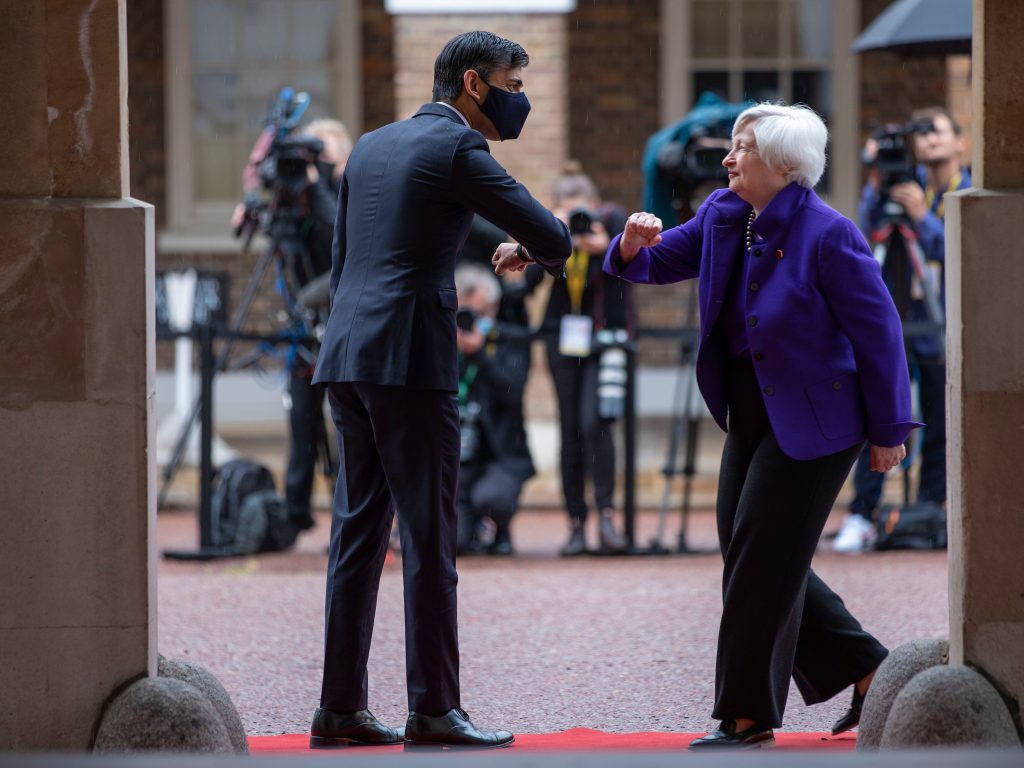- The UK will unveil plans for regulating crypto in coming weeks, CNBC reported citing sources.
- The Treasury plans are expected to be favorable to the industry and focus on stablecoins in particular.
- Government officials have consulted crypto industry groups and players like the Winklevoss twins' Gemini exchange.
The UK is set to release its plans for regulating the crypto market in the coming weeks, and government officials have been talking to industry players such as crypto exchange Gemini in preparation, according to a CNBC report.
The regulatory framework from the Treasury, the UK's finance ministry, will focus on stablecoins in particular, the outlet reported Sunday, citing industry sources familiar with the matter.
"Treasury officials have shown a willingness to understand the complexities of the crypto market and so-called stablecoins, digital assets that derive their value from existing currencies like the U.S. dollar," one source told CNBC.
The UK's finance minister, Chancellor Rishi Sunak, is expected to announce the new rules for the crypto market soon, and they are likely to be favorable to the industry, the report said. The Treasury declined to comment in response to a request from Insider
The crypto market has boomed over the past 18 months. Leading digital currencies bitcoin and ethereum logged a series of all-time highs during this time, though they have since fallen back, and offshoots such as NFTs and DeFi protocols also grew in popularity.
Stablecoins, which are digital currencies pegged to assets such as the US dollar, have also experienced a large uptick in usage in recent times, as they represent a stable investment compared with other more volatile cryptocurrencies.
As a result, governments and regulators have scrambled to understand and properly monitor the industry. Some countries, such as China, have decided to impose outright bans on crypto activities, while others look to understand and regulate the industry.
The UK has, so far, fallen into the latter group, as it looks to work with the crypto industry to mitigate risks and facilitate a safe environment for investors. One focus is the potential use of cryptocurrencies in money laundering and other criminal activity, while Russian use to bypass sanctions over Ukraine is another concern.
According to CNBC's sources, the UK government has been in consultation with several companies and trade groups, including the Winklevoss twins' exchange Gemini, which issues its own stablecoin, the Gemini dollar.
Stablecoins have raised concerns among regulators, specifically around misrepresentation of the assets in the reserves that back these coins. That could cause problems if investors were to sell their holdings en masse, so they have become a focal point of regulatory discussion.
To cushion them against the price swings seen in other cryptocurrencies, stablecoins can be pegged to anything from gold to oil. But stablecoins pegged to government-issued currencies are the most popular – dollar-pegged tether, for instance, is the world's third-largest cryptocurrency by market value, according to CoinMarketCap data.
To ensure a stablecoin holds onto its value, its issuer has reserves of the underlying asset. So for every tether coin issued, it has $1 in its reserves, and holders will always be able to exchange their tether coin for $1.
Banks and other institutions have become increasingly interested in entering the crypto markets, and clear regulation is seen as necessary before they can dive in more deeply.
On Thursday, the Bank of England noted this interest as it laid out ideas for the UK's first regulatory framework for crypto assets. It has given banks a deadline of June 3 to set out crypto plans and said UK regulators are likely to need new powers.
BoE deputy governor Sam Woods, wrote that discussions are ongoing internationally on the treatment of stablecoins and his office will continue to consult firms and trade groups throughout the process.
